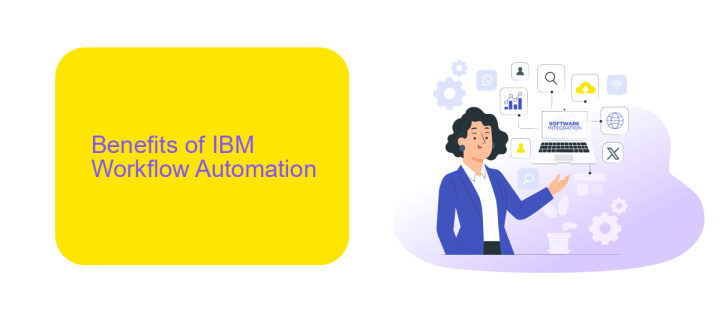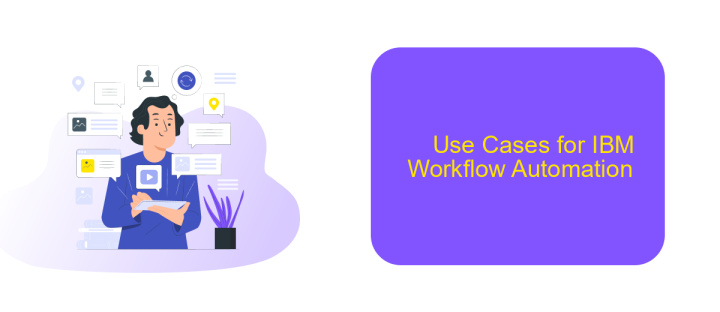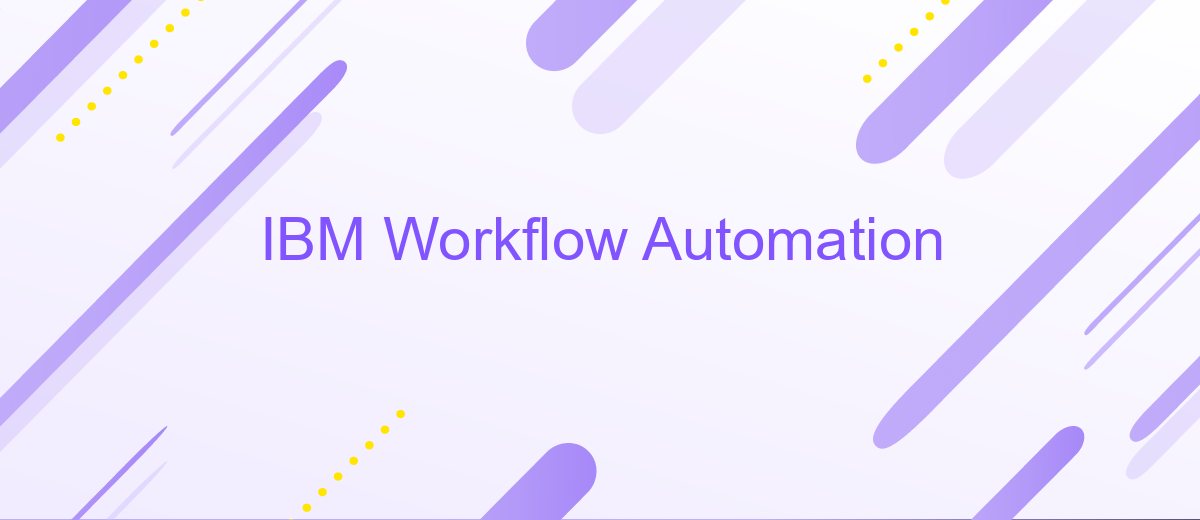IBM Workflow Automation
IBM Workflow Automation is revolutionizing the way businesses operate by streamlining complex processes and enhancing productivity. This cutting-edge solution integrates seamlessly with existing systems, automating repetitive tasks and enabling teams to focus on strategic initiatives. Discover how IBM Workflow Automation can transform your organizational efficiency and drive growth through intelligent, automated workflows tailored to your unique business needs.
Introduction to IBM Workflow Automation
IBM Workflow Automation is a powerful tool designed to streamline and optimize business processes. It allows organizations to automate repetitive tasks, reduce manual intervention, and improve overall efficiency. By leveraging this technology, companies can achieve greater productivity and focus on more strategic initiatives.
- Automates repetitive tasks
- Reduces manual intervention
- Enhances overall efficiency
- Improves productivity
- Supports strategic initiatives
One of the key features of IBM Workflow Automation is its ability to integrate seamlessly with various third-party services. For instance, ApiX-Drive can be used to set up integrations effortlessly, enabling data to flow smoothly between different applications. This integration capability ensures that businesses can maintain a cohesive workflow without the need for extensive coding or technical expertise. Overall, IBM Workflow Automation provides a robust solution for businesses looking to enhance their operational efficiency and drive growth.
Benefits of IBM Workflow Automation

IBM Workflow Automation offers numerous benefits that significantly enhance business processes and operational efficiency. By automating repetitive tasks, organizations can reduce human error and increase productivity, allowing employees to focus on more strategic activities. The platform provides real-time monitoring and analytics, enabling businesses to gain valuable insights into their workflows and make data-driven decisions. Additionally, the scalability of IBM Workflow Automation ensures that it can adapt to the growing needs of any organization, from small enterprises to large corporations.
Another key advantage is the seamless integration capabilities of IBM Workflow Automation. Through services like ApiX-Drive, businesses can effortlessly connect various applications and systems, streamlining data flow and improving overall efficiency. This integration simplifies complex processes and ensures that all systems work in harmony, reducing the need for manual data entry and minimizing the risk of errors. Furthermore, the user-friendly interface of IBM Workflow Automation allows for easy customization and configuration, making it accessible for users with varying technical expertise.
Key Features of IBM Workflow Automation

IBM Workflow Automation offers a comprehensive suite of features designed to streamline and optimize business processes. By leveraging advanced technology, it ensures efficiency, accuracy, and scalability in various workflows.
- Process Modeling: Create, visualize, and modify workflows with an intuitive drag-and-drop interface.
- Integration Capabilities: Seamlessly integrate with external systems and services, such as ApiX-Drive, to automate data transfer and synchronization.
- Real-time Monitoring: Track workflow performance and identify bottlenecks with real-time analytics and reporting tools.
- Scalability: Easily scale workflows to handle increasing volumes of tasks and data without compromising performance.
- Security: Ensure data integrity and compliance with robust security measures and access controls.
These key features make IBM Workflow Automation a powerful solution for businesses seeking to enhance their operational efficiency. By integrating with platforms like ApiX-Drive, organizations can further streamline their workflows and achieve seamless automation across various systems.
Use Cases for IBM Workflow Automation

IBM Workflow Automation offers a powerful solution for streamlining business processes and enhancing operational efficiency. By automating repetitive tasks, organizations can reduce errors, save time, and allow employees to focus on more strategic activities. This technology is versatile and can be applied across various industries and functions.
One of the primary use cases for IBM Workflow Automation is in the field of customer service. Automating ticketing systems and customer inquiries can significantly improve response times and customer satisfaction. Additionally, it can be utilized in human resources for automating employee onboarding, leave requests, and performance evaluations.
- Customer Service: Automate ticketing and inquiries to enhance response times.
- Human Resources: Streamline onboarding, leave requests, and evaluations.
- Finance: Automate invoice processing and expense approvals.
- IT Operations: Manage incident responses and system updates efficiently.
- Sales: Automate lead management and follow-ups.
Integrating IBM Workflow Automation with other systems can further enhance its capabilities. For instance, using services like ApiX-Drive can facilitate seamless integration with various third-party applications, ensuring a smooth data flow and enhancing overall productivity. By leveraging these integrations, businesses can create a more cohesive and automated workflow environment.
Conclusion
In conclusion, IBM Workflow Automation offers a robust solution for streamlining business processes and improving operational efficiency. By automating repetitive tasks, organizations can focus on more strategic initiatives, thereby driving innovation and growth. The platform's flexibility and scalability make it suitable for businesses of all sizes, ensuring that they can adapt to changing market demands with ease.
Moreover, the integration capabilities of IBM Workflow Automation can be further enhanced using services like ApiX-Drive. This tool simplifies the process of connecting various applications and systems, enabling seamless data flow and communication. By leveraging such integrations, businesses can achieve a more cohesive and efficient workflow, ultimately leading to better decision-making and enhanced productivity. With these combined technologies, organizations are well-equipped to navigate the complexities of today's digital landscape.
FAQ
What is IBM Workflow Automation?
How can IBM Workflow Automation benefit my business?
Is IBM Workflow Automation suitable for small businesses?
How do I integrate IBM Workflow Automation with my existing systems?
What kind of support is available for IBM Workflow Automation?
Do you want to achieve your goals in business, career and life faster and better? Do it with ApiX-Drive – a tool that will remove a significant part of the routine from workflows and free up additional time to achieve your goals. Test the capabilities of Apix-Drive for free – see for yourself the effectiveness of the tool.

